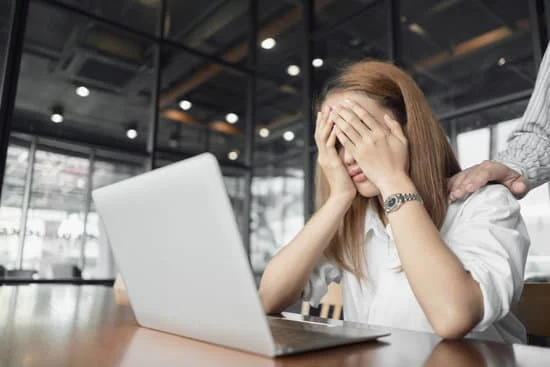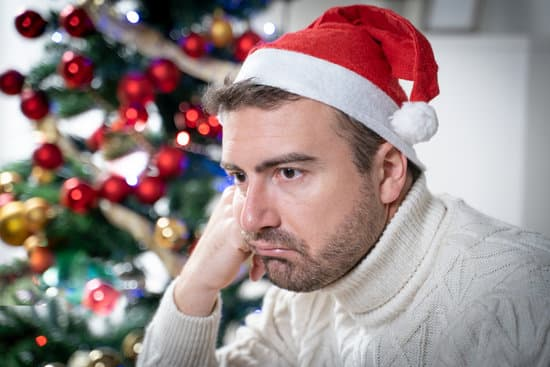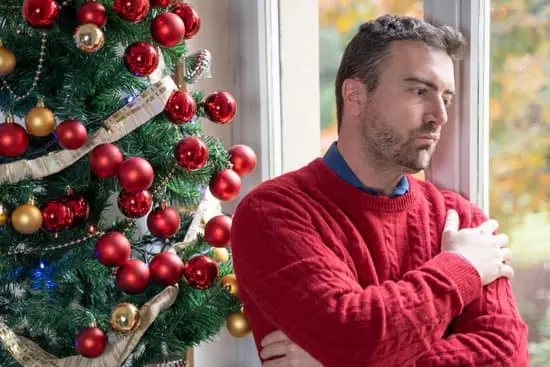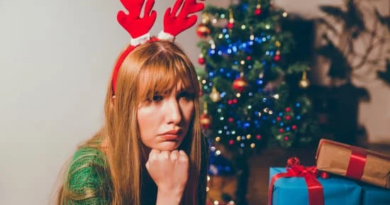Post-Christmas Anxiety: What it is and How to Deal with it
A look at the symptoms of post-Christmas anxiety and some suggestions for coping with it are provided in this article.
In general, we consider Christmas to be a unique time period that is in some way distinct from the rhythm and dynamics that we normally encounter over the remaining 11 months of the year. a few days that, even for many not religious people, signify reconciliation, love, and, more generally, what predominates in peaceful circumstances.
In light of this, the fact that it is rather normal to experience difficulties with anxiety in the days and weeks that follow the Christmas holidays should not come as a surprise to anybody. In this post, we will discuss its characteristics, potential causes, possible solutions, and what can be done about this issue.
What is post-Christmas anxiety?

Anxiety that builds up after Christmas is known as “post-Christmas anxiety,” and it’s caused by the shift from the Christmas holiday period to the normal routine that follows. Some individuals find it challenging to adapt to the swift transition from one circumstance to the next because they have not been able to “fine-tune” their coping abilities and are not adequately prepared for the quicker and more competitive pace of modern life.
In any event, post-Christmas worry is not in and of itself a psychopathological change; as a result, it does not appear in diagnostic manuals because there is no evidence that it actually exists. However, it may be a sort of discomfort that is severe enough to call for the assistance of a specialist.
How do we recognize this problem?

Post-Christmas anxiety is manifested via the standard symptoms of anxiety when it reaches excessively high levels for the individual (keeping in mind that a certain degree of worry is not harmful and is, in fact, a natural phenomenon in every human being. healthy). The following are the most typical examples:
- Sleeping difficulties
- Difficulty concentrating on tasks
- Irritability and propensity to feel frustration
- Greater muscle tension than normal
- Headaches
- A disposition to concentrate one’s thoughts on gloomy projections regarding the future events that are to come.
- Constant feeling of tiredness
- Propensity to feel dizzy
- General discomfort and muscle aches
- Improved heart rate
These symptoms come and go, and their frequency of occurrence is largely determined by the circumstances to which the individual is exposed, as well as the memories and ideas that pass through their mind at any one time.
Christmas Fact For You: Tom Hanks played six different roles in ‘The Polar Express.’
In addition to voicing the conductor, Hanks also played Hero Boy, Father, Hobo, Scrooge, and Santa Claus.
Causes of this phenomenon

These are some of the reasons why people experience post-Christmas worry after the holiday season has passed.
Return to the demands of work
After Christmas, there is less of an inclination to be sympathetic and conciliatory with other people; this is something that is particularly visible in the workplace.
Feelings of guilt about expenses
After Christmas, the psychological impacts of the marketing activities that were carried out on these days fade away, and the consumer is confronted with the objective truth of the money spent on items and meals. The realization of this can sometimes come as a severe blow to one’s emotions.
Problems making ends meet
To the list of challenges that many individuals have while trying to make it through the month with the money that is now in their bank account, we need to add another component, namely, the efforts that are made to save money in real life.
Discomfort due to changes in eating habits
After a few days of longer and ample meals, pain may start to set in that spans from bodily to mental (a bad diet encourages inflammatory processes, and these are the problems that are related to anxiety and sadness). In addition, transitioning from family dinners that take several hours to a circumstance in which you just have thirty minutes to make anything during the workday can be very challenging.
What To do?

Anxiety that occurs after Christmas seldom develops into a more serious mental illness, and in the vast majority of instances, it disappears on its own within a matter of a few weeks. To swiftly adjust to the new circumstances and develop the essential skills for emotion regulation, it might be helpful to have psychotherapy support.
There are instances when this is convenient. On the other hand, if the discomfort persists for an excessive amount of time, this may be an indication that there is a form of psychological change that requires being treated in the consultation of a psychologist before it becomes chronic.
If you want to make some extra money by creating, playing and selling puzzle books, or if you just want to be able to print them off at home to enjoy, then check out this software here.
Do you want to have professional psychological assistance?
Contact us if you are interested in overcoming or better coping with any kind of emotional pain that affects you in your day-to-day life and are seeking psychotherapy services to help you do so. People of all ages may seek help from us at Psicomaster, where we also provide treatment for individuals, families, and couples. The sessions can either take place in person at our facility, which is located in Madrid, or they can take place online through the use of a video call.
Conclusion
To sum up, it is important to recognize and address the often-overlooked phenomenon of post-Christmas anxiety that affects many individuals after the holiday season. The sudden shift from the festive cheer to the monotony of daily life can trigger a range of emotions, including stress and sadness. To prevent these feelings from escalating into more serious mental health issues, practicing self-awareness, seeking support from loved ones, and implementing coping strategies such as relaxation techniques, realistic goal-setting, and planning enjoyable activities is crucial. By actively managing post-Christmas anxiety, we can navigate the post-holiday period with greater resilience and positivity, leading to a healthier and happier start to the new year.
- Facebook0
- Twitter0
- Pinterest0
- LinkedIn0
- 0 shares






